US Welcomes Trilateral Summit Between Israel, Egypt And UAE
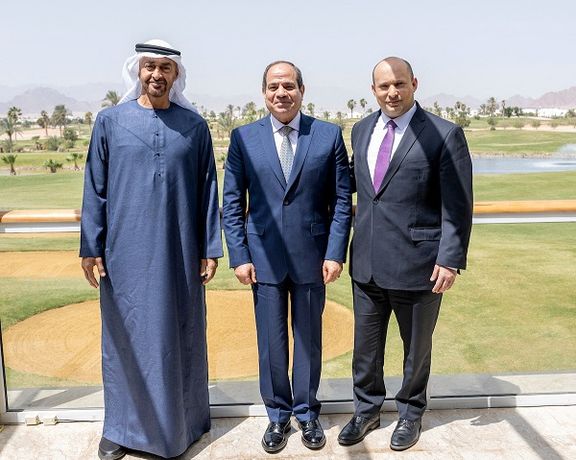
The US State Department has welcomed the trilateral summit on Tuesday between the leaders of Egypt, Israel and the United Arab Emirates, partly focused on Iran.

The US State Department has welcomed the trilateral summit on Tuesday between the leaders of Egypt, Israel and the United Arab Emirates, partly focused on Iran.
Leaders of the three counties met in Sharm el-Sheikh for talks on the economic impact of Russia's invasion of Ukraine and the growing influence of Iran in the region.
State Department spokesperson Ned Price told reporters in his daily briefing that Washington will continue to support. the Abraham Accords.
The three counties, in addition to Saudi Arabia, are concerned about the Biden Administration’s attempts to reach a new deal with Iran to revive the 2015 nuclear agreement known as JCPOA. Israeli officials in particular have indicated that Washington is not fully responsive to their concerns about Iran’s nuclear program and regional ambitions.
Price tried to implicitly address these concerns, saying that US Special Envoy for Iran Robert Malley has been in close consultations with Persian Gulf Arab partners. The spokesman tried to argue that Washington’s Arab allies welcome its diplomatic efforts to revive the JCPOA.
But the trilateral meeting between Egypt, Israel and the UAE is seen as a regional effort to create a united front against Iran, whether the JCPOA is revived or not.
He also underscored President Joe Biden’s commitment to prevent Iran from ever acquiring nuclear weapons.
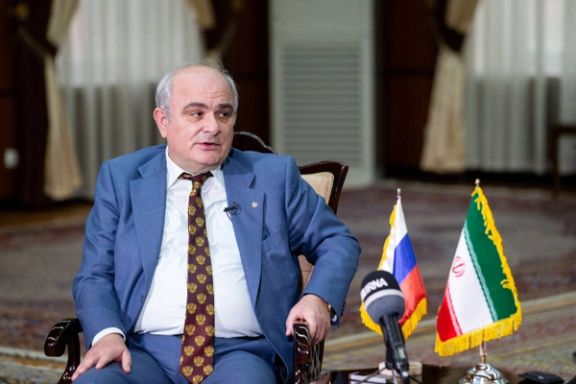
A tweet by the Russian embassy in Tehran in reaction to US President Joe Biden’s congratulatory message for Noruz (Nowruz) has led to controversy.
Khabar Online, a leading news website in Tehran, ran an article about a tweet by the Russian embassy on Tuesday, calling it an epitome of “interference in the diplomatic affairs of the host country by ambassadors”.
Describing it as a violation of international norms and protocols, the article echoed similar sentiments by many Iranian social media users who urged an official reaction by the Iranian foreign ministry.
Reacting to Biden’s message, the Russian embassy described it as hypocritical that Washington imposes sanction on the Islamic Republic but congratulates the Noruz.
“Those who for a long time have been imposing illegal unilateral sanctions against Iran and exerting economic pressure on this country cynically congratulate on Nowruz”, the post said, adding that “We consider this the height of hypocrisy!”
However, President Biden – as well as Secretary of State Antony Blinken -- made no mention of Iran or the aspirations of Iranians in their Noruz messages, unlike their predecessors.
“Jill and I want to extend our best wishes to all who are celebrating Nowruz around the world. The Nowruz holiday means gathering at the Nowruz table to give thanks for loved ones, reflect on your blessings, and welcome all the possibilities of a new season”, read the message.
In recent weeks Russia’s prominent role in the Vienna nuclear negotiations has led to controversy in Iran, as many have said Moscow is using the talks to secure its own interests.
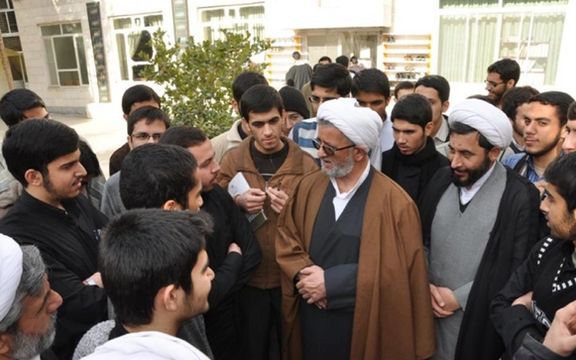
This article is the first in a series about Iran’s Shiite clerics, explaining how they study, get a clerical rank, get married and what they do for a living.
-----------------------------------------------------------------------------------------------------------------------------
Before clerics came to power in Iran in 1979, mullahs as we know them in the West, or akhunds as they were called in Iran, used to solemnize marriages, tell stories about the martyrdom of the 12 imams to set the stage for the pious villagers and small-town dwellers to weep, or to recite verses from the Koran to usher the dead into paradise.
Some say the Islamic revolution was in fact a revolt that brought fundamentalist clerics to power, who often had no professional training or academic background for the government positions they later occupied.
Iranians and Iran watchers might remember that during the televised debates among presidential candidates in 2021, one candidate revealed that Ebrahim Raisi, who eventually won the election, had been to regular school for only six years. Now, he must make modern-day economic decisions, meet and interact with foreign leaders and run a huge bureaucracy.
Seyyed Ahmad Bathaei, born in 1987, studied at the Qom Seminary and is now a Ph.D. candidate in Philosophy and at the same time works as deputy dean at the Islamic Art Institute. "All of us have quit official schooling at one point to join the seminary and become a renowned scholar. I never know what it was I wanted to do to earn a living. As a young man, I had no dream, no future. But life grabs you by the neck at one point and makes you decide," he says.
"Many of my friends thought I would be a cleric like my dad. But my father left it to me to decide. He said: 'He can do anything he wants to do. No pressure.' I finally made the decision after nine years at a normal school. I applied for studying at the seminary. On the exam day I was so nervous I threw up on my papers. When the results came out and I passed the exam, I did not know exactly how to feel. I was amazed, happy, and at the same time helpless. I was not ready for the challenge. My father once again left me to decide for myself to continue at grade 10 at a normal school or to start from the scratch at the seminary," Bathaei remembers.
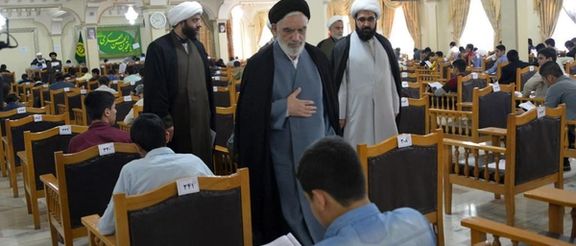
"When he found me undecided, he said that I could go to the seminary, complete the clerical studies and then continue my "normal" education to become a doctor or an engineer. In fact, in those days there was a cleric in Qom who was a medical doctor. So, what my dad said could be true. And I chose to become an akhund, an Iranian Shiite cleric," he maintains.
According to Bathaei, seminary teachers prefer students who come to Qom as a younger man because their character is still not rigid and they can shape it in the 'right' way. The seminary starts after an interview to assess your character and the classes start in September. The best students end up at one of Qom's 24 madrassahs.
Courses start with minimal Arabic grammar and continue with elementary Islamic ideology and the attestations of big scholars on various matters of everyday life. The clerics have to learn the Arabic to be able to read the textbooks, but very few learn even a basic Arabic.
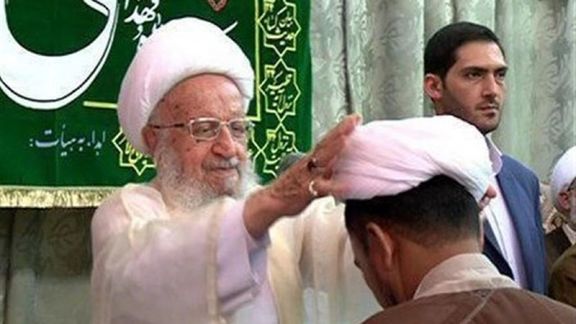
After classes during which a teacher lectures the basics, the students get together, often in groups of three to discuss what they have learned. One of them repeats the teacher's lecture and the other two keep asking questions. Every day, there are usually four one-hour lectures followed by four discussions. At the beginning, all the students wish to be a Seghat ul-Islam or a learned scholar of Islam, but many end up becoming a simple cleric.
The muqaddamat (introductory) and the sat’h (advanced) levels continue for about six years. Many stop at the introductory level, but still they are believed to have turned from seminary students to clerics. That is when they get their robe (aba) and turban (ammameh) from their teacher. The costume is supposed to make the clerics look like the prophet. At this stage, the clerics become Hojjat ul-Eslam. They can no longer go out in jeans and T-shirts. Their behavior should show their dignity.
Nontheless, after the Islamic revolution, many clerics have chosen to be "amphibious" which means they can separate their daily life as clerics or as laymen and choose what they wear at different times. Former presidential adviser Hesamoddin Ashna and former vice-president Mohammad Nahavandian are examples of such clerics. They appear both in clerical garb and in Western suits.
To become an ayatollah, the Hojjat ul-Eslam needs to take at least another two or three advanced courses (dars-e kharej). The title has nothing to do with politics. Many clerics like to be called ayatollahs and in fact many do call them as such. But influential clerics such as Ayatollah Ali Khamenei do not buy that and refuse to call those clerics ayatollah and simply refer to them as "Hojjat ul-Eslam".An ayatollah who can teach the dars-e kharej, and does it for several years, may become an ayatollah ul-ozma (grand ayatollah). Out of a thousand clerics, a few can become ayatollahs and perhaps only one or two will become as high-ranking as a grand ayatollah.
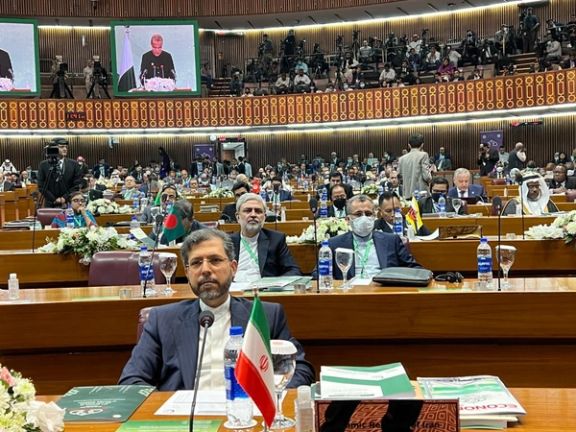
Iran’s Foreign Ministry spokesman attending an Islamic gathering on Tuesday has said improving Tehran-Riyadh relations would benefit all regional countries.
In an interview with IRNA Tuesday in Pakistan’s capital Islamabad at the 48th session of the Council of Foreign Ministers of the Organization of Islamic Cooperation (OIC), Saeed Khatibzadeh said that the OIC was one platform that could facilitate Iran-Saudi relations within the context of unity among Muslim nations.
Iranian President Ebrahim Raisi (Raeesi), who took office last August, has stressed the importance of improving relations with neighbors, and Tehran has conducted four rounds of talks with Riyadh facilitated by Iraq. Diplomatic relations were severed in 2016 after Tehran protestors attacked the Saudi embassy following the execution of Shia cleric Nimr al-Nimr.
Earlier this month Iran suspended the talks a day after Saudi Arabia announced it had beheaded 81 men, including seven Yemenis and a Syrian, for “heinous crimes.” Forty one were Saudi Shiites, Human Rights Watch reported, apparently convicted over protests.
Khatibzadeh welcomed Iran’s renewed participation in OIC since it reopened its representative office in Jeddah, the OIC base, in February. With 57 member states, the OIC represents around a quarter of the world’s population. Iran’s trade with OIC countries was reportedly $42 billion in the first ten months of the last Iranian year, ending January 20.
"From Yemen to Afghanistan, the Islamic world's unity is the key to address the crises,” Khatibzadeh tweeted.
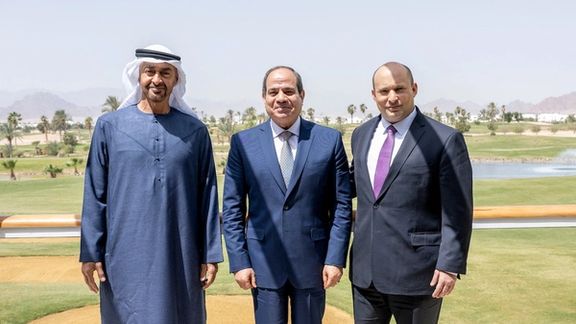
Leaders of Egypt, Israel and the United Arab Emirates met Tuesday for talks focused on economic fallout from the Ukraine crisis, while Iran was also discussed.
Egypt said discussions covered energy markets and food security. Both Russia and Ukraine are major exporters of agricultural products to the Middle East and North Africa.
Analysts said Iran’s regional policies were also brought up, but rising food and oil prices were more on the mind of Egyptian President Abdel Fattah al-Sisi in hosting Sheikh Mohammed bin Zayed al-Nahyan, Crown Prince of Abu Dhabi and de facto UAE leader, and Israel's Prime Minister Naftali Bennett. This was the first three-way summit since Israel and the UAE ‘normalized’ relations in 2020.
Egypt, the world’s largest wheat importer takes half of its imports from Russia and another 30 percent from Ukraine. Cairo Monday devalued its currency by 14 percent, and its Red Sea resorts are losing tourist income from wealthy Russian and Ukrainian visitors. The Egyptian military government that seized power in 2013 has strengthened links to Israel but despite over $1 billion aid from the US in 2021 may now seek financial assistance from the UAE.
Inadequate food
Egypt’s apparent priorities at Sharm el-Sheikh summit reflect increasing international concern over food supplies. Human Rights Watch reported Monday that regional governments needed urgently to find ways to protect their populations from the consequences of losing imports from Ukraine and Russia. Nearly one in three people in the Middle East and North Africa did not have access to adequate food in 2020, the HRW watch report said, an increase of 10 million people in just one year.
Israel, despite its links to Russia and Russian-speakers making up around 15 percent of its population, has broadly supported the US over Ukraine, while UAE has remained neutral and along with Saudi Arabia has resisted calls from Washington to increase oil exports to meet shortfall in Russian exports.
The Saudi government Tuesday stressed the “essential role” of the ‘Opec+’ agreement (production deals agreed by the Organization of Petroleum Exporting Countries with Russia) in balancing global oil supplies. The statement was taken as a sign it was unlikely the grouping would agree at its March 31 meeting to raise output as the US and some European states have requested in the face of rising prices. Benchmark Brent was at $111 a barrel Tuesday.
Iran Nuclear Deal
While the Gulf Arab states and Israel remain critical of efforts to revive Iran’s 2015 nuclear deal with world powers, the JCPOA (Joint Comprehensive Plan of Action), Iran is not topping the agenda in Sharm el-Sheikh. Bennett has moderated his past attacks on the JCPOA as some former Israel intelligence officials have cautiously supported the deal’s revival.
After the Gulf Arab states’ close relationship with the previous US administration of President Donald Trump, when they stepped up arms deals, their links had cooled under President Joe Biden.
But while the Biden administration has expressed concern over the humanitarian crisis in Yemen, where 4 million have been displaced, it has also lately increased military support for Saudi Arabia, including reportedly Patriot missiles, after Ansar Allah – the Houthis – have brought the war from Yemen, where Saudi Arabia has been involved since 2015, to missile strikes on the kingdom.
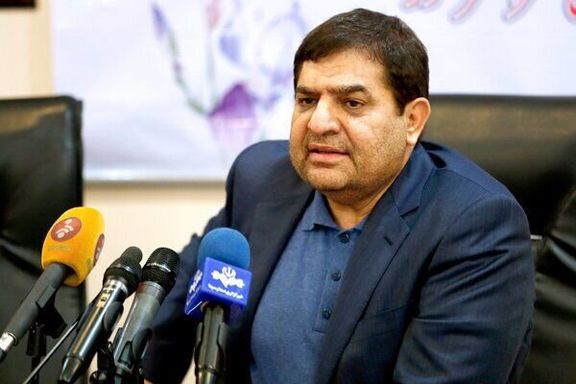
Iran’s problem with the “enemy” is fundamental and will never be resolved with negotiations, Vice President Mohammad Mokhber told reporters on Tuesday.
Without naming the United States, Mokhber said, “Some think [the problem with the enemy] will be resolved through talks, but it is not so, although we should negotiate to lift the sanctions.”
Praising what he called the people’s readiness to sacrifice, the vice president added, “In negotiating with the West we need to be in a position of power and the enemy should accept that it cannot eradicate us. This crucial need cannot be addressed with ballistic missiles, but with people’s support and their high spirits.”
He compared the current situation with the 8-year war between Iran and Iraq in the 1980s, to highlight the importance of sacrifices by the people.
Mokhber’s comments come as Iran’s decade-old economic crisis has led to repeated protests and labor strikes since 2017 and the weakening of regime’s legitimacy. The June 2021 presidential elections also saw the lowest turnout in the 43-year history of the Islamic Republic.
Mokhber was a top business manager in the office of Supreme Leader Ali Khamenei before becoming President Ebrahim Raisi’s first vice president. He was the director of the Execution of Imam Khomein’s Order, an entity meant to be a charitable organization, which has become a business conglomerate by controlling companies, banks and businesses.